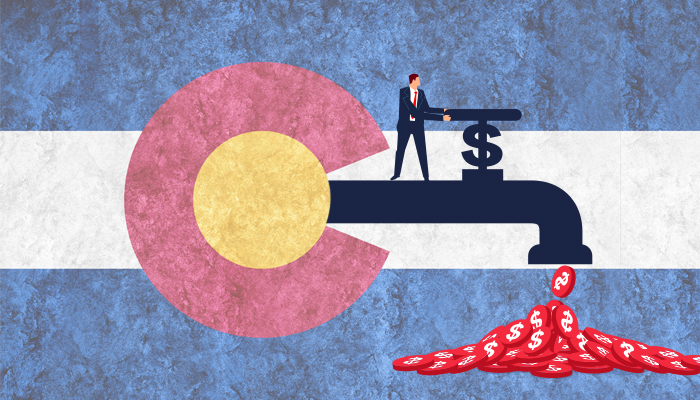 Betting Bill Fails to Get Past Alabama Conference CommitteeRead Article
Betting Bill Fails to Get Past Alabama Conference CommitteeRead Article Lisa SpencerMay 18, 2024
Lisa SpencerMay 18, 2024
According to recent reports, Colorado voters will have the opportunity this November to lift the current cap of $29 million on sports wagering taxes allocated to water projects in the state. Officials said that this is a decision that could have a huge impact on water management in Colorado.
This comes after House Bill 24-1436 received approval from both chambers of the Colorado legislature. If all goes well, it will pave the way for a ballot measure to be presented to voters, potentially allowing for an increase beyond the existing $29 million threshold.
The bill states that referring a ballot measure to voters could:
…allow the state to keep and spend all sports betting tax revenue in excess of the twenty-nine million dollar estimated increase in state tax revenue approved by voters in 2019 for the purpose of funding water conservation and protection projects rather than refunding such excess revenue to casinos.
Under current regulations, Colorado imposes a 10 percent tax rate on sports wagering within the state. A portion of the revenue generated from these taxes is designated for the oversight of operators, with the remainder allocated to water projects. However, the latter is currently capped at $29 million.
The initiative to allocate sports wagering taxes to water projects gained traction following the approval of Proposition DD by Colorado voters in November 2020. This ballot measure legalized sports betting and aimed to direct revenue toward the state’s water initiatives. Since the launch of regulated sports betting in Colorado the following year, the revenue contributed to state water projects has steadily increased.
While the initial revenue from sports wagering taxes amounted to $19.4 million over the first two fiscal years, the total revenue has risen to approximately $43.1 million since 2021. Data shows that revenue nearly tripled from $7.9 million in 2021 to $23.7 million in 2023, as reported by the Colorado Department of Revenue.
Supporters of HB 24-1436 have spoken out about the reasons for removing the $29 million cap and allowing for potential increases in funding. With Colorado experiencing rapid population growth, the state faces escalating water demands.
It is estimated that Colorado’s population, which stood at 5.84 million residents at the end of 2022, could nearly double by 2060. This will increase the need for substantial investments in water projects.
Failure to adjust the cap on sports betting taxes could result in excess funds being redirected away from water projects and back into the betting industry.
Many officials in Colorado have expressed concern about this, stating that funding for water projects in the state is crucial and that the money would be used far more productively with this type of investment rather than being returned to the betting industry.
The decision of whether to increase the cap will be placed into the hands of Colorado voters, who could determine the amount of money directed toward critical water projects through their ballot decisions in November.
 Betting Bill Fails to Get Past Alabama Conference CommitteeRead Article
Betting Bill Fails to Get Past Alabama Conference CommitteeRead Article Lisa SpencerMay 18, 2024
Lisa SpencerMay 18, 2024 North Carolina Lawmaker Introduces Bill to Ban College Prop BetsRead Article
North Carolina Lawmaker Introduces Bill to Ban College Prop BetsRead Article Lisa SpencerMay 15, 2024
Lisa SpencerMay 15, 2024 November Referendum on Sports Betting Likely in MissouriRead Article
November Referendum on Sports Betting Likely in MissouriRead Article Lisa SpencerMay 13, 2024
Lisa SpencerMay 13, 2024